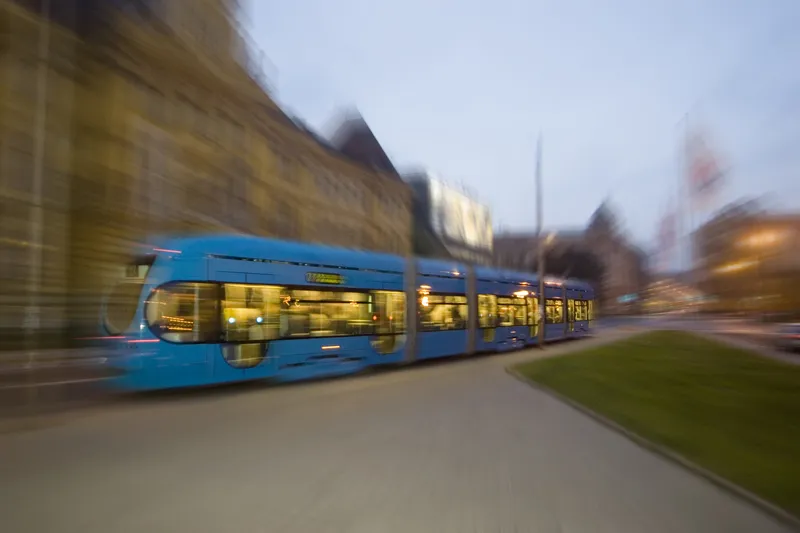According to new market research report by MarketsandMarkets, the smart railway market is predicted to grow from US$5.34 Billion in 2015 to US$13.77 Billion by 2020, at a CAGR of 20.8 per cent over the period.
The smart railways concept includes the combination of advanced solutions and services of intelligent transportation with the information and communication technology. It facilitates the smart use of rail assets, from tracks to trains which will enable companies to meet the increasing consumer dema
January 15, 2016
Read time: 3 mins
According to new market research report by 6418 MarketsandMarkets, the smart railway market is predicted to grow from US$5.34 Billion in 2015 to US$13.77 Billion by 2020, at a CAGR of 20.8 per cent over the period.
The smart railways concept includes the combination of advanced solutions and services of intelligent transportation with the information and communication technology. It facilitates the smart use of rail assets, from tracks to trains which will enable companies to meet the increasing consumer demand for more efficient and safer services. In the coming years, the smart railways market is expected to gain traction with the increasing trends of government regulations, innovations in information technologies and hyper-urbanisation.
The macroeconomics environment in the past few years has emphasized high level competition in the smart railways market. Technology vendors are adopting and developing solutions to improve transportation services in the areas of operational efficiency, safety and security, and passenger satisfaction and retention. Some of the emerging technologies, which are likely to be adopted and implemented to transform rail transportation into smarter rail transportation include passenger predictive analytics, freight predictive analytics, breakdown failure predictive analytics, cloud infrastructure, and passenger infotainment solutions among others. Technologies such as communications based train control (CBTC), positive train control (PTC), smart ticketing and global system for mobile communications – railway (GSM-R) will replace age-old technologies in rail infrastructure to improve operation efficiency and safety and passenger comfort.
The smart railways market in Europe is expected to contribute largest market share in the smart railways market, followed by North America. On the other hand, developing regions such as Asia-Pacific (APAC) and Middle East and Africa (MEA) are expected to experience a significant growth in the coming years owing to increasing smart cities projects. However, APAC is expected to grow at the highest CAGR from 2015 to 2020. The major vendors in the smart railways market include8158 Alstom, 1028 Cisco Systems., General Electric Company, 2213 Hitachi, 62 IBM, 4540 ABB, 513 Bombardier, 6787 Huawei Technologies, 509 Indra Sistema and 189 Siemens.
The scope of the report covers detailed information regarding the major factors influencing the growth of the smart railways market such as drivers, restraints, challenges, and opportunities. A detailed analysis of the key industry players has been done to provide insights into their business overview, products and services, key strategies, new product launches, mergers & acquisitions, partnerships, agreements, collaborations and recent developments associated with the smart railways market.
The smart railways concept includes the combination of advanced solutions and services of intelligent transportation with the information and communication technology. It facilitates the smart use of rail assets, from tracks to trains which will enable companies to meet the increasing consumer demand for more efficient and safer services. In the coming years, the smart railways market is expected to gain traction with the increasing trends of government regulations, innovations in information technologies and hyper-urbanisation.
The macroeconomics environment in the past few years has emphasized high level competition in the smart railways market. Technology vendors are adopting and developing solutions to improve transportation services in the areas of operational efficiency, safety and security, and passenger satisfaction and retention. Some of the emerging technologies, which are likely to be adopted and implemented to transform rail transportation into smarter rail transportation include passenger predictive analytics, freight predictive analytics, breakdown failure predictive analytics, cloud infrastructure, and passenger infotainment solutions among others. Technologies such as communications based train control (CBTC), positive train control (PTC), smart ticketing and global system for mobile communications – railway (GSM-R) will replace age-old technologies in rail infrastructure to improve operation efficiency and safety and passenger comfort.
The smart railways market in Europe is expected to contribute largest market share in the smart railways market, followed by North America. On the other hand, developing regions such as Asia-Pacific (APAC) and Middle East and Africa (MEA) are expected to experience a significant growth in the coming years owing to increasing smart cities projects. However, APAC is expected to grow at the highest CAGR from 2015 to 2020. The major vendors in the smart railways market include
The scope of the report covers detailed information regarding the major factors influencing the growth of the smart railways market such as drivers, restraints, challenges, and opportunities. A detailed analysis of the key industry players has been done to provide insights into their business overview, products and services, key strategies, new product launches, mergers & acquisitions, partnerships, agreements, collaborations and recent developments associated with the smart railways market.







